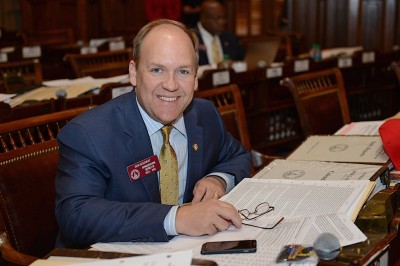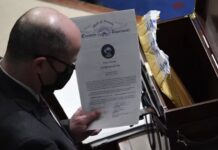
The issue of surprise medical billing continues to be the legislative topic I am hearing most about from people in the district. I wrote about this issue in a column a few weeks back and wanted to provide an update on the debate. To catch anyone up who missed the first column on the subject, “surprise medical billing” refers to that unfortunate moment when you get a bill, after a medical procedure, and the bill says one or more medical professionals who provided services to you were not members of your insurance network. And because of that, you owe a lot of money.
My previous article mentioned a House bill and a Senate bill dealing with the issue. As of last Friday night, the House bill, HB 71, is stalled. The Senate bill, SB8, has been changed, but is still active in the process.
Although there have been changes, SB 8 continues to require preservice cost disclosure by medical service providers. It also provides clarity on emergency care charges. Emergency care is an area where patients are most vulnerable. When someone has been in an accident or has an emergency health condition, there is no time to stop and have a discussion about whether the physician or hospital is in the patient’s insurance network. The solution proposed by SB 8 is that the patient will be expected to pay the average area rate for the emergency services provided. But the legislation also creates a mechanism for the patient to remit those charges back to their insurance company, even though the provider was out-of-network.
Additionally, the legislation addresses dispute resolution for surprise bills in nonemergency cases. The legislation creates an “Independent dispute resolution entity.” Basically, the legislation proposes to create a board comprised of physicians that will resolve billing disputes via a mediation type process.
Senate Bill 8 also directs The Department of Community Health to develop and maintain a benchmarking database to establish “usual and customary costs” for medical procedures in Georgia. This database will aid in providing a cost history for use by the “dispute resolution entity.”
This is an issue that has affected many Georgians and has powerful interests on all sides…with the patient caught in the middle.
If you have specific questions about this issue or others, please contact me at [email protected] or 404-656-0325.
About the author: Rep. Dan Gasaway (R-Homer) represents the 28th GA House District. His district includes Stephens and Banks Counties and the southern end of Habersham. Rep. Gasaway is Secretary of the House Human Relations & Aging and Natural Resources & Environment House Committees. He also serves on the House Budget and Fiscal Affairs Oversight, Higher Education, and Insurance Committees.







